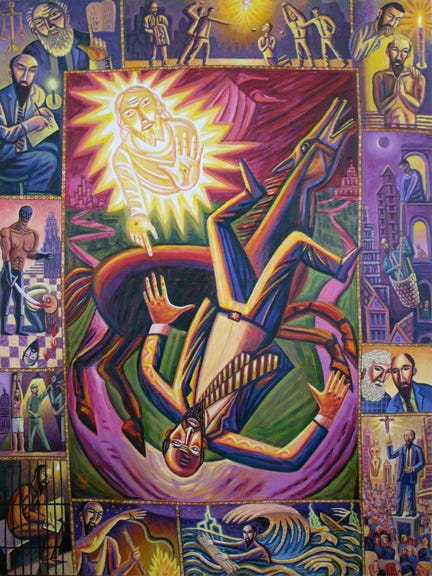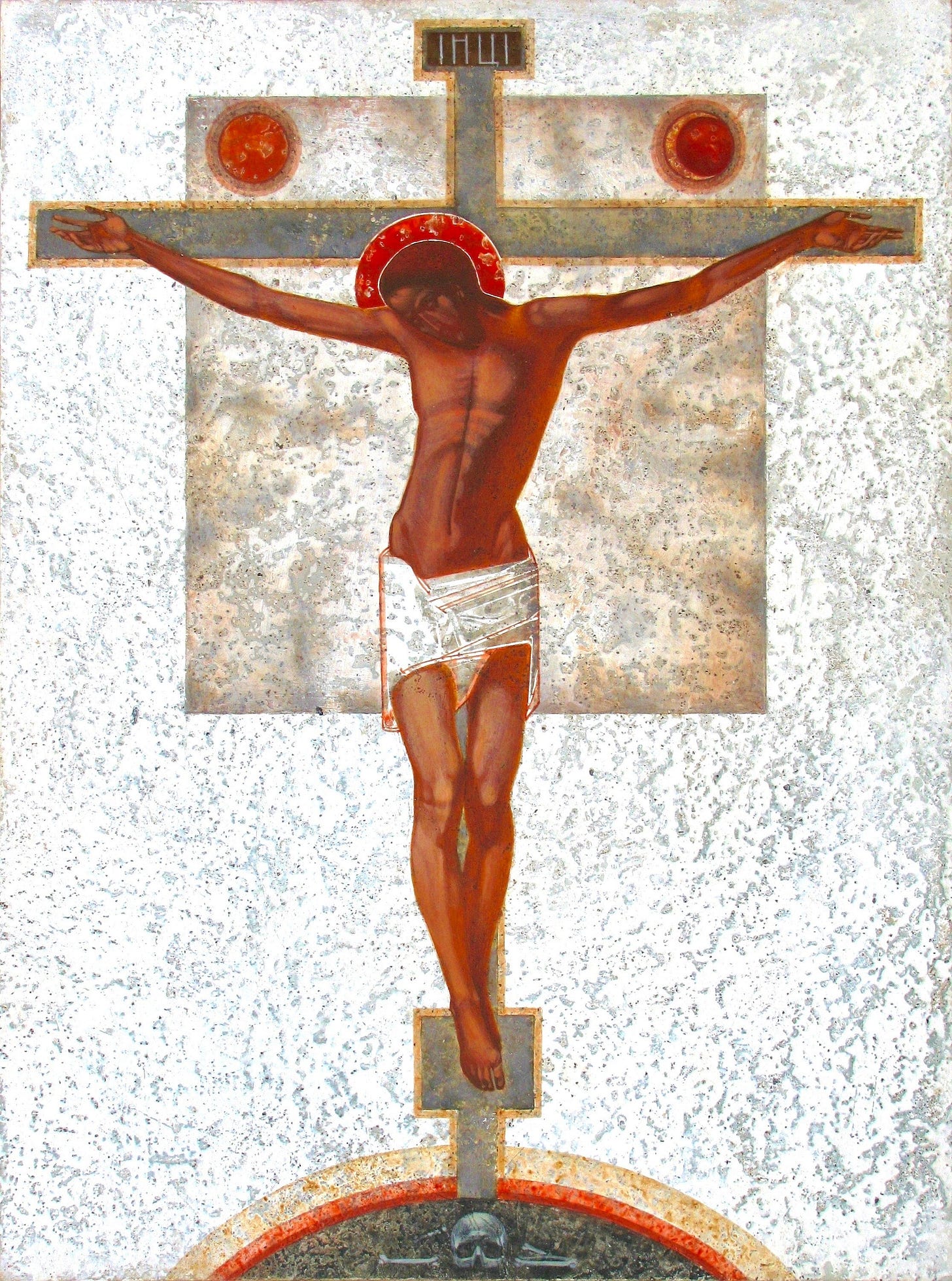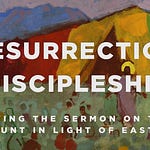“I appeal to you therefore, brothers and sisters, by the mercies of God, to present your bodies as a living sacrifice, holy and acceptable to God, which is your spiritual worship. Do not be conformed to this world, but be transformed by the renewing of your minds, so that you may discern what is the will of God—what is good and acceptable and perfect.”[i]
Paul’s grand “therefore” at the beginning of chapter 12 is launched by the thrust of chapters one through 11.
“Therefore, by the mercies of God.”
“Therefore, because of the grace of God, because God loves you and there is nothing you can do about it, because God loves you just as you are, and because God loves you too much to leave you just as you are,” Paul writes, “be prepared to ‘be transformed by the renewal of your mind, so that you may discern the will of God’ so that you ‘do not conform to this world.’[ii]”
Paul is instructing the church to be prepared for the ongoing transformation of our lives by the power of the Holy Spirit. Transformed. Changed. Made over. Made new.
Paul is preaching about something he knows quite a bit about. We have mentioned it several times over the past few weeks, but you need to know that Paul had a transformational encounter with Christ. Before Paul was Paul, he was Saul, and Saul was changed along the Road to Damascus when Jesus met him.
Acts, chapter 9. “Saul, still breathing threats and murder against the disciples of the Lord, (Saul) went to the high priest and asked him for letters to the synagogues at Damascus so that if he found any who belonged to the Way, men or women, he might bring them bound to Jerusalem. Now as he was going along and approaching Damascus, suddenly a light from heaven flashed around him. He fell to the ground and heard a voice saying, ‘Saul, Saul, why do you persecute me?’ He asked, “Who are you, Lord?” The reply came, ‘I am Jesus, whom you are persecuting.’”[iii]
Saul was going to Damascus to hunt down Christians when he was knocked on his rear. Saul planned to arrest followers of Jesus and instead was chosen by Christ to proclaim the gospel to “Gentiles and kings and before the people of Israel.”[iv] Saul spent a few days in Damascus before he began proclaiming Jesus in the synagogues, saying, “He is the Son of God.”[v]
Saul was convincing. “All who heard him were amazed and said, ‘Is not this the man who made havoc in Jerusalem among those who invoked this name? And has he not come here for the purpose of bringing them bound before the chief priests?’”[vi]
Transformed and made new, Saul became Paul.
Paul was the recipient of an extreme makeover, and he is instructing the church then and now to be prepared for the same transformation.
When we proclaim Christ as Lord of our lives, we should expect to be changed. No one has an encounter with Jesus, and remains the same.
A man was chained outside of his village, Mark chapter 5. The man “had often been restrained with shackles and chains, but the chains he wrenched apart, and the shackles he broke in pieces; and no one had the strength to subdue him.”[vii] The man was possessed. Jesus called the unclean spirit out of the man and sent the man home to tell his friends and family what the Lord had done and of God’s mercies.
A few verses later, a woman had been suffering hemorrhages for 12 years. The crows around Jesus were so large that she could not get Jesus’ attention. The woman reached out to Jesus, grabbing his cloak, and “immediately”[viii] she was healed.
A few verses after this, Jesus arrives at the home of an influential family. He had been called upon to heal their daughter, but the girl was dead when he arrived. As the family wept, Jesus asked, “Why do you make a commotion and weep? The child is not dead but sleeping.”[ix] The girl got up and was healed.
That is one chapter in one gospel with three extreme transformations because of an encounter with Jesus.
Saint Paul is telling the church that we all desperately need a real transformation. We are all in need of an extreme makeover. If all of humanity is living under the power of Sin, Paul writes, then all of us need this makeover. We are all in need of Grace.[x]
We all need to be transformed.
This makeover is what happens when we come to faith in Christ Jesus. Our transformation is the grace of God at work, sanctifying us, making us more and more, from the inside out, like Christ.
After telling his disciples about his death and resurrection, Jesus told them, “If any want to become my followers, let them deny themselves and take up their cross and follow me. For those who want to save their life will lose it, and those who lose their life for my sake, and for the sake of the gospel, will save it.”[xi]
As Paul describes, being transformed means taking on a new character. The character of the Christian life is cruciform – meaning our lives take on the shape of the One who was crucified.
A life of self-sacrifice.
A life willing to suffer.
A life that is distinctive from the world because it is Christ-like.
Before the Real Housewives of New York City or Washington, D.C., before the Kardashians, and before The Bachelor were our reality TV fixes, we had Extreme Makeover: Home Edition. You remember the show, right? A dreamy Tye Pennington led a team of contractors and volunteers to makeover the home of a well-deserving member or family in the community. The homeowner held a standing within the community that made them stand out. They were different because of something they had done or were going through.
The seven-day deadline always seemed impossible, but the extreme home makeover was nearly always completed through the power of project management and ignoring OSHA requirements. After the drywall dust had settled and the paint dried, friends and family would chant, “Move that bus!” The bus would pull forward as the anticipation became too much for viewers. Parents would cry as children leaped with joy. The recipients’ lives were forever changed through the love and the handwork of friends, neighbors, and local contractors (and through the power of video editing).
If we miss or do not understand what Paul’s “therefore” is there for, we can turn the task of transformation from gospel good news into another burdensome task. Without Paul’s “therefore,” without the previous 11 chapters of Paul detailing what the grace of God is and that we are the recipients of this grand gift, to live a transformed life as described by Paul is burdensome, if not down-right impossible. Without the “therefore” we do not hear the gospel; we do not hear that through Christ we are transformed.
The “therefore” makes the cruciform-life possible.
Transforming lives, transforming the Church, is more extreme than making over a home in seven days. But (and it’s a big but so you know it does not lie) this transformation, unlike the television show, is happening not because of who you or we are within our community. The grace of God does not care about your club membership, the promotion you just received at work, or our stock portfolios. Transformation is happening not because of who you are but rather because of whose you are. And through grace, you are God’s beloved.
If you are looking for self-improvement, you have come to the wrong place. Paul’s “therefore,” is the mind of Christ taking shape. We are not emulating Jesus or even following Jesus’ path as though he were a motivational speaker or life coach. Paul is urging us to see that we are in Christ. He said it back in chapter six, by faith and by baptism, because of God you now are in Jesus Christ. We have new life in Jesus’ resurrection because Jesus is a living Lord.
Christ’s character shapes the church, has shaped the church, making us over from conforming to the world to being made new through grace.
Rev. Fleming Rutledge underscores this. She writes, “This is not a process that God begins in us, followed by his stepping aside to observe how we will respond. God is in this from first to last because to be ‘in Christ’ is to be continually made new by the power of the Spirit.”[xii]
The makeover that has happened and is happening in you, in us, is God’s handiwork. New life in Christ. This is not a process. This is already true because of Christ, freeing us to become who we already are: forgiven and redeemed. With Christ and through Christ, we have been made new.
[i] Romans 12:1-2, NRSV
[ii] Romans 12:2
[iii] Acts 9:1-5
[iv] Acts 9:15
[v] Acts 9:20
[vi] Acts 9:21
[vii] Mark 5:4
[viii] Mark 5:30
[ix] Mark 5:39
[x] Romans 3:23-24
[xi] Mark 8:34-35
[xii] Rutledge, Fleming. The Crucifixion. Page 557.



















Share this post